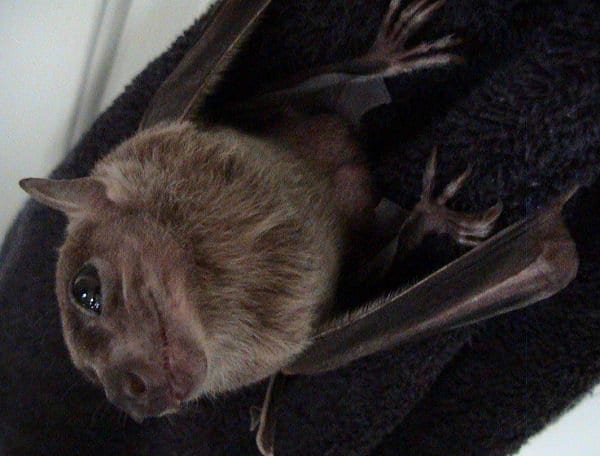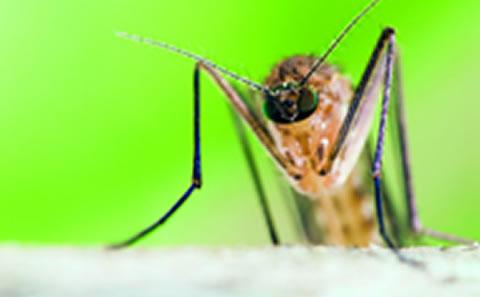
Researchers from Singapore’s Duke-NUS Medical School, in collaboration with scientists in China, have identified and characterised a new genus of filovirus from a Rousettus bat in China. Their findings were published in the journal Nature Microbiology.
Bat-borne viruses around the world pose a threat to human and animal health. Filoviruses, especially Ebola virus and Marburg virus, are notoriously pathogenic and capable of causing severe and often fatal fever diseases in humans by affecting many organs and damaging blood vessels.
“Studying the genetic diversity and geographic distribution of bat-borne filoviruses is very important for risk assessment and outbreak prevention as this type of infectious disease can affect the general public without warning with devastating consequences,” said Professor Wang Lin-Fa, Director of the Emerging Infectious Diseases Signature Research Programme at Duke-NUS Medical and a senior author of the study.
The researchers discovered the new virus while analysing the diversity of filoviruses in Rousettus bats. They named it the Menglà virus because it was discovered in Menglà County, Yunnan Province, China. They detected the virus from a bat sample and conducted sequencing and functional characterization studies.
The results showed that the Menglà virus represents a new genus named Dianlovirus within the filovirus group. The Menglà virus is genetically distinct, sharing just 32%-54% of its genetic sequence with other known filoviruses. It is found in different geographic locations compared to other filoviruses. This new genus, which could include more than one species, sits in between Ebola virus and Marburg virus on the evolutionary tree.
The researchers tested the Menglà virus in cell lines from various animal species and found that, like other filoviruses, it poses a potential risk of interspecies transmission.
The results confirmed that the Menglà virus is evolutionarily closely related to Ebola virus and Marburg virus and shares several important functional similarities with them. For example, the genome organisation of the Me
nglà virus is consistent with other filoviruses, coding for seven genes. The Menglà virus also uses the same molecular receptor, a protein called NPC1, as Ebola virus and Marburg virus to gain entry into cells and cause infection.
“The early identification of the filovirus from Rousettus bats by Prof Wang and researchers in China is one of the many strong research collaborations the Emerging Infectious Diseases (EID) Programme at Duke-NUS engages in,” noted Professor Patrick Casey, Senior Vice Dean of Research, Duke-NUS Medical School. “With globalisation, it is important to identify and assess the risk of potential infectious disease outbreaks and, from it, develop effective controls strategies and treatments.”
At present, the virus has only been identified in Rousettus bats in China. Further tests will be conducted to assess the risk of the virus spreading to other species.
Learn more: Duke-NUS researchers discover new bat-borne virus related to Ebola
The Latest on: Mengla virus
[google_news title=”” keyword=”Mengla virus” num_posts=”10″ blurb_length=”0″ show_thumb=”left”]
via Google News
The Latest on: Mengla virus
- Understanding Herpes Simplex Virus: Transmission, Diagnosis, and Considerations in Pregnancy Managementon April 25, 2024 at 5:00 pm
Genital herpes simplex virus (HSV) infections are frequently asymptomatic or undiagnosed, but more than half the US population is seropositive for HSV, and about one-fifth are positive for HSV-2.
- Influenza A(H1N1)pdm09 Viruson April 24, 2024 at 5:00 pm
The authors are grateful to the Council of Scientific and Industrial Research (CSIR-CCMB), India, for encouragement and support for this work. NIH Awards (R37DA025576; R01MH085259) also support SK ...
- Computer Virus Simulatoron April 7, 2024 at 10:35 am
Computer Virus Simulator will wreak havoc on you safely in-game. Computer Virus Simulator takes you on a thrilling journey through the world of computer virus all wrapped up in a completely ...
- Hated and huntedon April 6, 2024 at 10:04 pm
He had heard about this type of computer virus and how dangerous it could be. But he never thought that he would be tricked into clicking on a wrong link. Now, as he read the ransom note ...
- A fungal pandemic is massacring frogs, but scientists just found a virus that could lead to a cureon April 5, 2024 at 11:15 pm
While examining the BD fungus to learn about weaknesses, they discovered a single-stranded DNA virus trapped within the genome of the fungus. Although this only applied to certain strains ...
- Monkey Bite Gives Man Rare Viruson April 5, 2024 at 8:41 am
A man is in critical condition after he was bitten by a monkey and contracted a rare but potentially lethal virus. The 37-year-old man was bitten by wild monkeys in Hong Kong's Kam Shan Country ...
- Man Attacked by Monkeys Catches Rare, Life-Threatening B Viruson April 4, 2024 at 5:00 pm
This week, local health officials reported a case of B virus in a 37-year-old man—the first ever reported in the region. Human B virus infections are rare, and they can be life-threatening ...
- Is Bird Flu Coming to People Next? Are We Ready?on April 4, 2024 at 5:00 pm
Unlike the coronavirus, the H5N1 virus has been studied for years. Vaccines and treatments are available should they ever become necessary. By Apoorva Mandavilli Bird flu outbreaks among dairy ...
- Hong Kong’s first monkey virus case – what do we know about the B virus?on April 4, 2024 at 5:00 pm
Hong Kong’s Centre for Health Protection has announced its first human case of B virus in a rare incidence of a virus being transmitted from animals to humans. The centre is urging the public to ...
- Bird Flu Detected in a Person in Texas: What We Know So Faron April 1, 2024 at 5:00 pm
A person in Texas has tested positive for the highly pathogenic avian influenza A virus (H5N1), also known as bird flu, the U.S. Centers for Disease Control and Prevention has confirmed.
via Bing News










